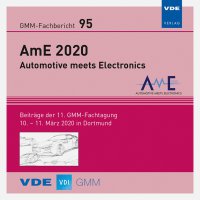The TRACE Methodology
Conference: AmE 2020 – Automotive meets Electronics - 11. GMM-Fachtagung
03/10/2020 - 03/11/2020 at Dortmund, Deutschland
Proceedings: AmE 2020 – Automotive meets Electronics
Pages: 6Language: englishTyp: PDF
Authors:
Busch, Rebecca; Wahl, Michael (Universität Siegen, Germany)
Völkel, Holger (Bayrische Motoren Werke Aktiengesellschaft, Germany)
Aal, Andreas (Volkswagen AG, Germany)
Abstract:
Consumer components in an automotive environment have always be regarded as a safety critical issue. The introduction of consumer components is, on one hand, necessary, because components providing all the new features which have not yet been implemented in cars are not available in the automotive grade. This is also valid for components developed for low electrical and high computational power as used in mobile applications. On the other hand, the requirements for the application of semiconductors are quite strict and prevent the usage of consumer components in a car. These contradicting requirements lead to an ongoing discussion between OEMS, 1st tiers and 2nd tiers. The fact that robustness and reliability as well as financial liability are at stake implies further complications. The European project TRACE1 was an activity which covered main aspects of reliability of electronic systems in the automotive domain, but the most significant outcome of the project was the TRACE Methodology which allows an easier integration of CE2 in an automotive environment. TRACE has also a wider reach as just the project itself: As an outcome, the VDE/ITV MN 5.7 working group has been formed to provide an open platform for the further collaboration among all partners along the automotive value chain on non-competitive topics like general requirements on reliability, robustness, and characterization of components. This working group is not only open for German partners, but intended for the worldwide exploitation of the TRACE results. This contribution will describe shortly the TRACE project framework and the TRACE methodology which is built on the technical foundations provided by the TRACE project.


